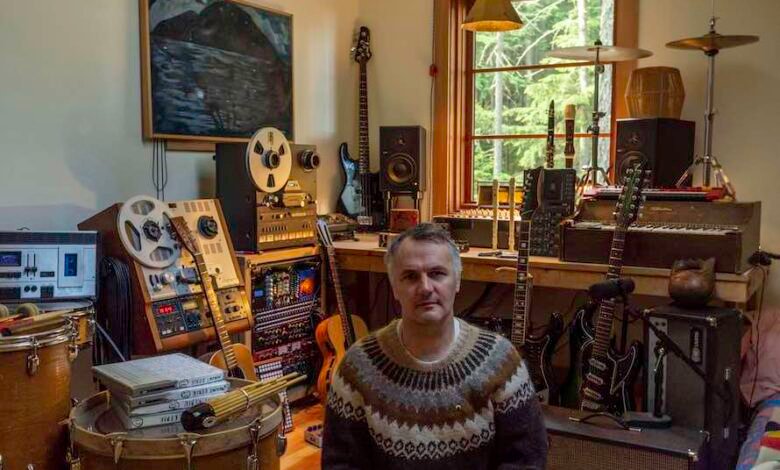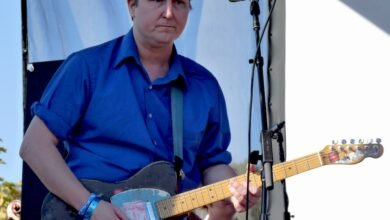Mount Eerie Celebrates the Transformative Influence of Eric’s Trip │ Exclaim!

[ad_1]
“I like albums that feel like compilations — that go to lots of different places,” Phil Elverum tells Exclaim! from his home studio on Orcas Island just off the coast of Washington. The discussion is centred around Night Palace, the first new album by Mount Eerie in five years, which consists of 26 eclectic, folk, punk and underground rock songs, all clocking in at around 81 minutes.
With its mix of field recordings and ambient hum, Night Palace is a refined return to the analogue world of Elverum’s earliest musical innovations, back when he was known as the Microphones.
“It would be punishing if it was 80 minutes long of all the same pop-punk or whatever,” he continues. “That would suck. And I should say, it is edited down. There’re lots of recordings that didn’t make the album.”
Elverum is known for his home-recording style and an idiosyncratic approach to self-managing virtually all aspects of his creative and commerical life. He now lives a half-hour ferry ride away from Anacortes, where, as a young musician, he played drums in a band called D+ but came to public prominence on his own, first releasing music as the Microphones between 1996 and 2003 (plus intermittent revivals, including touring in 2019 and releasing a final album in 2020), and then as Mount Eerie.
In each of those projects, listeners can hear traces of Eric’s Trip, Will Oldham, Sonic Youth and Stereolab, who are among the artists that Elverum has cited as director inspirations. Moncton, New Brunswick-bred Rick White’s four-track recording approach in Eric’s Trip — not to mention his collaborations with Julie Doiron — is still something Elverum draws from. White’s influence is evident as ever on Night Palace.
“I was a teenager, and I was doing a zine, and my friend at the record store was funnelling me all the promos that he could from Sub Pop and K,” Elverum recalls. “And so, I got a promo cassette of [Eric’s Trip’s classic 1993 album] Love Tara and it just blew my mind. Loved it. And I just went all in — started writing to [Doiron’s own label] Sappy Records and ordering every single thing. I still have all the correspondence from Julie, because she would write, ‘Thanks for the order, Phil!'”
Elverum was so smitten with what he calls the “beautiful and tactile” nature of White’s recording style that it continues to impact his approach with Mount Eerie, whose records possess distant voices, otherworldly sounds, and a range of styles and instruments that place the compelling songs in a singular, intimately off-kilter universe.
“It felt homemade,” he says of Eric’s Trip’s records. “I was listening to albums that had been recorded in a nice studio with a producer who was editing out all the chatter between the songs. And so, to hear, like, a dog barking in the background and a car drive by and all that stuff — it blew my mind.”
Though he never saw Eric’s Trip live when they were initially active, Elverum made a pilgrimage to Moncton in the late 1990s and eventually released two collaborative records with Doiron, whose earnest authenticity, along with White’s penchant for both stark and saturated sounds, has left a mark on Elverum’s music that’s still evident all these years later.
“I feel like it’s more obvious If you look at my artwork” he says “I feel a little embarrassed how much I used to lift from Rick White’s aesthetic. Like with Don’t Wake Me Up and early Microphones stuff, it was so obvious. Although, at the time, it didn’t feel like I was intentionally stealing a thought. I thought of my ideas originally, and then I would see a Rick White thing and be like, ‘Ah, damn it, he was there first.'”




